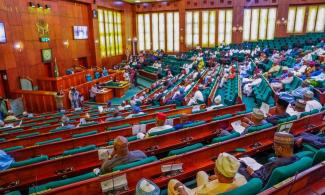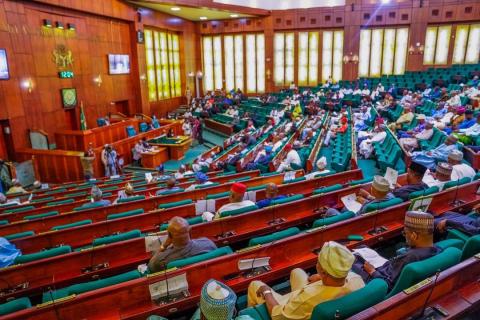
This development comes amidst the legal tussle between the Federal Inland Revenue Service (FIRS) and the governments of Rivers and Lagos states over the collection of Value-Added Tax.
The House of Representatives in Nigeria is currently making a move to pass a Bill that will empower the state governments to collect value added tax (VAT)
Politics Nigeria learnt that the bill titled, "An Act to Alter 39, Part 1 of the Second Schedule of the 1999 Constitution as Amended to Substitute and Move the Item from the Exclusive Legislative List to the Concurrent Legislative List” was sponsored by House members – Hassan Usman Sokodabo and John Dyegh.

The bill read in part, “The Constitution of the Federal Republic of Nigeria, 1999, is hereby altered as set out. Item 39, part 1 of the Second Schedule of the Principal Act, Altered by substituting the item and moving it from the Exclusive Legislative List, to the Concurrent List.
“Thus, item 39, Part 1 of the Second Schedule of the Constitution to be moved to the Concurrent Legislative List now read: States Government shall manage their resources, mines and minerals, including oil fields, oil mining, Values Added Tax (VAT), geological surveys as well as natural gas. 50% of the total revenue accruable from the minerals shall be retained by the state where the minerals are derived.”
“30% shall be credited to the Distributable Pool Account, while the remaining 20%, shall be credited to the Federation Account."
This development comes amidst the legal tussle between the Federal Inland Revenue Service (FIRS) and the governments of Rivers and Lagos states over the collection of Value-Added Tax.
Rivers State government has been involved in the legal tussle with the FIRS over collection of VAT, since a High Court in Port Harcourt ruled in favour of the state government.
Lagos State has since joined Rivers State while a number of southern states are now queuing behind them.